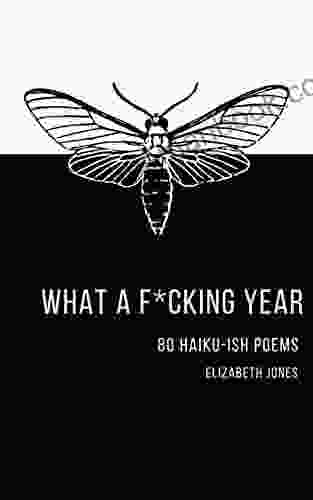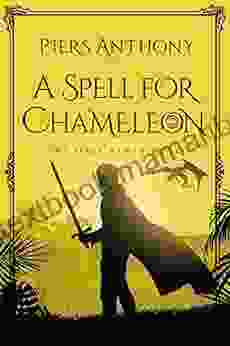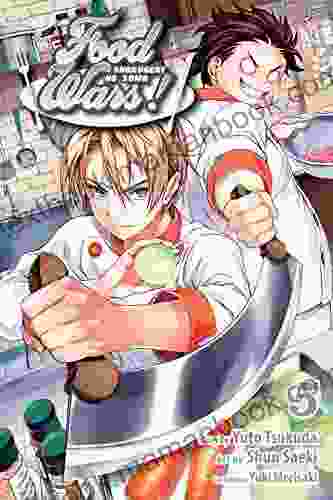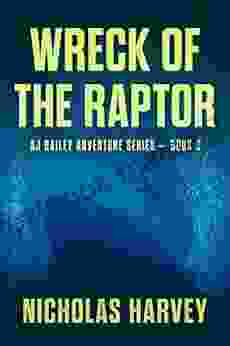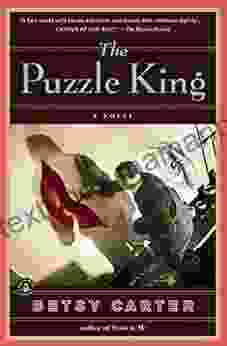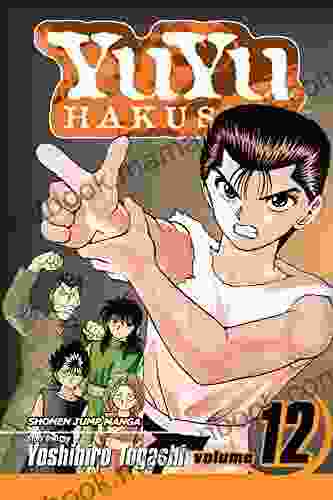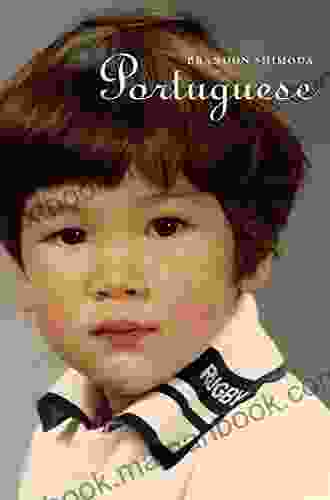Unveiling the Enchanting Realm of 80-Syllabled Haiku Poetry in the Year 80

A Journey Through Time
In the annals of literary history, the year 80 stands as a pivotal moment in the evolution of Japanese poetry. It was during this transformative era that the seeds of the haiku, a renowned poetic form revered for its brevity and evocative power, were first sown. Embark on a captivating journey as we explore the origins and enduring legacy of 80-syllabled haiku poetry.
4.8 out of 5
| Language | : | English |
| File size | : | 422 KB |
| Screen Reader | : | Supported |
| Print length | : | 104 pages |
| Lending | : | Enabled |
| Hardcover | : | 128 pages |
| Item Weight | : | 12.6 ounces |
| Dimensions | : | 6.14 x 0.38 x 9.21 inches |
The Birth of an Art Form
The genesis of the haiku can be traced to the Heian period (794-1185),a time of great cultural and artistic flourishing in Japan. During this epoch, the imperial court became a hub of literary activity, fostering the development of various poetic genres. Among these, the tanka emerged as a prominent form, consisting of five lines with a prescribed syllable pattern: 5-7-5-7-7.
The tanka's popularity soared, inspiring poets to experiment with variations on its structure and themes. One such innovation was the hokku, a three-line poem that captured a fleeting moment or observation in nature. The hokku comprised three lines of 5-7-5 syllables, embodying the essence of the tanka's first three lines.
As the hokku gained traction, it began to take on a life of its own, gradually evolving into the haiku as we know it today. The term "haiku" emerged in the 17th century, coined by the poet Masaoka Shiki. Shiki believed that the haiku should be an independent poetic form, distinct from the tanka. He advocated for the use of the word "kireji," a cutting word that creates a sense of separation or pause within the poem.
Characteristics of the Haiku
The haiku adheres to a strict syllable count of 5-7-5, giving it a concise and epigrammatic quality. This brevity demands precision and economy of language, challenging poets to convey complex emotions and observations in a limited space.
Another defining characteristic of the haiku is its focus on nature and the present moment. Haiku poets strive to capture the essence of a particular season, object, or experience, often employing vivid imagery and sensory details. The use of kireji further enhances this effect, creating a sense of juxtaposition or contrast that emphasizes the poem's central moment.
The Enduring Legacy of Haiku
From its humble beginnings in the year 80, the haiku has blossomed into a globally recognized and celebrated poetic form. Its influence can be seen in various literary traditions, including modernism, Imagism, and Beat poetry.
Haiku masters such as Matsuo Bashō, Yosa Buson, and Kobayashi Issa have left an enduring mark on the literary landscape. Their works continue to inspire and captivate readers with their ability to capture the beauty and transience of life in a few carefully chosen words.
Modern Interpretations of Haiku
In contemporary times, the haiku continues to evolve and adapt to the changing literary landscape. While traditional haiku forms remain popular, contemporary poets are also experimenting with variations on the classic structure and subject matter.
Some modern haiku poets explore urban themes, incorporating elements of technology and contemporary culture into their works. Others experiment with free verse and language play, pushing the boundaries of the form while still retaining its essence.
The journey of 80-syllabled haiku poetry from its inception in the year 80 to its enduring legacy in the modern era is a testament to the power and versatility of this literary form. Its brevity, focus on nature, and ability to capture the essence of a moment continue to captivate readers around the world.
As we delve into the depths of haiku poetry, let us appreciate the ingenuity of those who first crafted these exquisite verses and the enduring impact they have had on literature and culture throughout history.
4.8 out of 5
| Language | : | English |
| File size | : | 422 KB |
| Screen Reader | : | Supported |
| Print length | : | 104 pages |
| Lending | : | Enabled |
| Hardcover | : | 128 pages |
| Item Weight | : | 12.6 ounces |
| Dimensions | : | 6.14 x 0.38 x 9.21 inches |
Do you want to contribute by writing guest posts on this blog?
Please contact us and send us a resume of previous articles that you have written.
 Top Book
Top Book Novel
Novel Fiction
Fiction Nonfiction
Nonfiction Literature
Literature Paperback
Paperback Hardcover
Hardcover E-book
E-book Audiobook
Audiobook Bestseller
Bestseller Classic
Classic Mystery
Mystery Thriller
Thriller Romance
Romance Fantasy
Fantasy Science Fiction
Science Fiction Biography
Biography Memoir
Memoir Autobiography
Autobiography Poetry
Poetry Drama
Drama Historical Fiction
Historical Fiction Self-help
Self-help Young Adult
Young Adult Childrens Books
Childrens Books Graphic Novel
Graphic Novel Anthology
Anthology Series
Series Encyclopedia
Encyclopedia Reference
Reference Guidebook
Guidebook Textbook
Textbook Workbook
Workbook Journal
Journal Diary
Diary Manuscript
Manuscript Folio
Folio Pulp Fiction
Pulp Fiction Short Stories
Short Stories Fairy Tales
Fairy Tales Fables
Fables Mythology
Mythology Philosophy
Philosophy Religion
Religion Spirituality
Spirituality Essays
Essays Critique
Critique Commentary
Commentary Glossary
Glossary Bibliography
Bibliography Index
Index Table of Contents
Table of Contents Preface
Preface Introduction
Introduction Foreword
Foreword Afterword
Afterword Appendices
Appendices Annotations
Annotations Footnotes
Footnotes Epilogue
Epilogue Prologue
Prologue James Harley
James Harley Hazel Henderson
Hazel Henderson Megan Wagner Lloyd
Megan Wagner Lloyd Tom Vander Ark
Tom Vander Ark Mary Meinking
Mary Meinking Sean Hill
Sean Hill Randall M Rueff
Randall M Rueff Roberto Calas
Roberto Calas Alex Reyes
Alex Reyes Karyna Mcglynn
Karyna Mcglynn Sylvia Plath
Sylvia Plath Disney Book Group
Disney Book Group Guy Haley
Guy Haley Jonathan Martin
Jonathan Martin Simone Soares
Simone Soares Polly Teale
Polly Teale Golden Note
Golden Note Daniel Marciano
Daniel Marciano Kelly Walker Edwards
Kelly Walker Edwards Chittadhar Hrdaya
Chittadhar Hrdaya
Light bulbAdvertise smarter! Our strategic ad space ensures maximum exposure. Reserve your spot today!
 Fernando BellFollow ·10.1k
Fernando BellFollow ·10.1k Clarence MitchellFollow ·11.7k
Clarence MitchellFollow ·11.7k Alexander BlairFollow ·10.6k
Alexander BlairFollow ·10.6k Adam HayesFollow ·4.8k
Adam HayesFollow ·4.8k Jay SimmonsFollow ·5k
Jay SimmonsFollow ·5k Quincy WardFollow ·14.5k
Quincy WardFollow ·14.5k Avery SimmonsFollow ·2.1k
Avery SimmonsFollow ·2.1k Kelly BlairFollow ·13.5k
Kelly BlairFollow ·13.5k
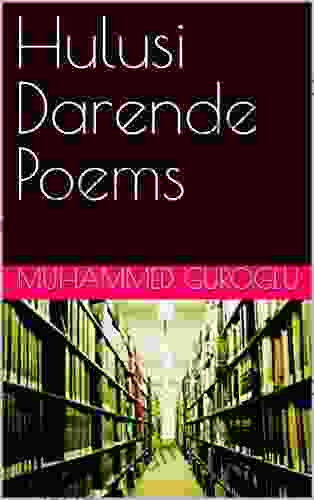
 Forrest Reed
Forrest ReedHulusi Darende's Poems: Unraveling the Lyrical Tapestry...
: A Journey into the Heart of Sufi...
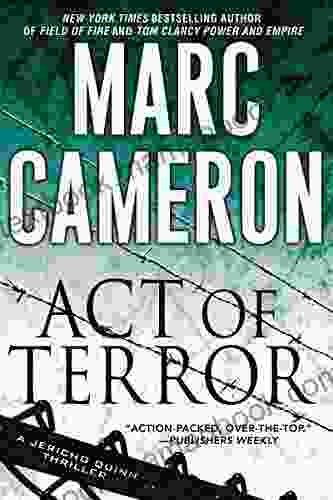
 Gabriel Blair
Gabriel BlairAct of Terror: A Jericho Quinn Thriller
In the heart-pounding...
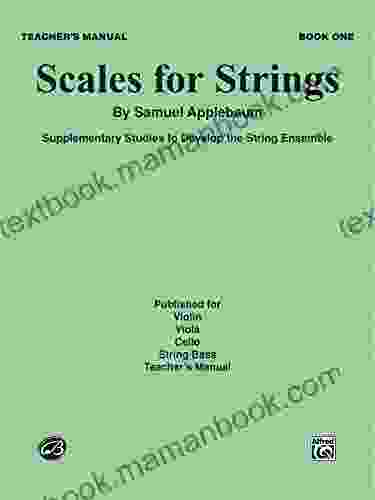
 Zadie Smith
Zadie SmithScales for Strings Teacher Manual: A Comprehensive Guide...
Scales are fundamental building blocks of...
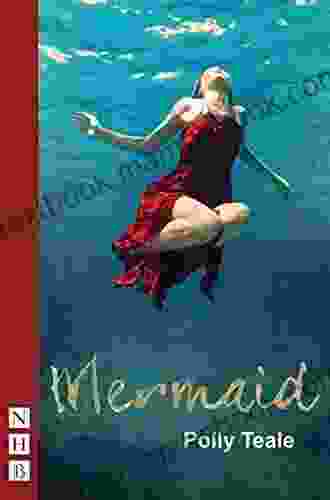
 Hugo Cox
Hugo CoxMermaid (NHB Modern Plays) Polly Teale
The Mermaid NHB Modern Plays series, a...
4.8 out of 5
| Language | : | English |
| File size | : | 422 KB |
| Screen Reader | : | Supported |
| Print length | : | 104 pages |
| Lending | : | Enabled |
| Hardcover | : | 128 pages |
| Item Weight | : | 12.6 ounces |
| Dimensions | : | 6.14 x 0.38 x 9.21 inches |


